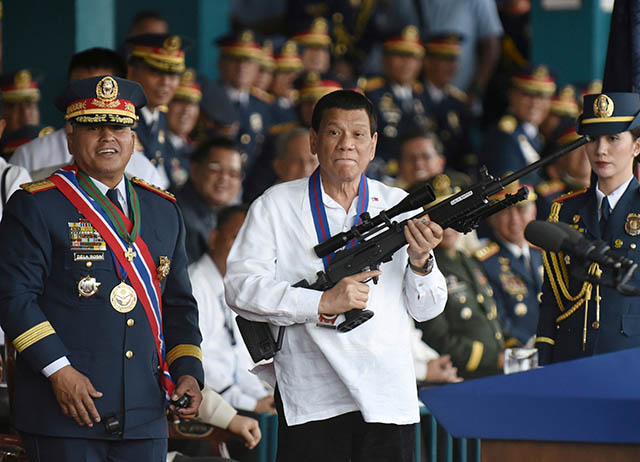Granting the Philippines a fresh three-year term on the UN Human Rights Council has vindicated President Rodrigo Duterte’s crackdown on drugs and shown his detractors to be “morally corrupt”, senior officials said on Saturday.
Human rights activists say Duterte’s “war” on drugs after taking office in June 2016 since when the police have killed more than 4,800 people made his government unfit for a seat at the body.
But the Philippines was re-elected to the 47-seat council by secret ballot at the UN General Assembly on Friday, with 165 out of 193 votes, with one abstention.
“The president’s campaign against illegal drugs, corruption, and criminality has, in effect, been acknowledged by the international community as essential to the protection of the right to life, liberty and property,” Duterte’s spokesman, Salvador Panelo, said in a statement.
Foreign Affairs Secretary Alan Peter Cayetano said: “We are really greatly honored as this is a vindication that fake news and baseless accusations have no place in modern-day human rights discussions.”
“We thank human rights advocates around the world but also condemn a few who are morally corrupt and who use human rights for political and financial gain.”
Duterte is the subject of two complaints before the International Criminal Court that accuse him of crimes against humanity over the drug-related killings.
One of Duterte’s fiercest critics, Congressman Gary Alejano, described the Philippines‘ re-election to the body as a “big irony”.
“A country that has numerous cases of human rights violations has no place in the Council,” he said in a statement.
Duterte’s government has denied that the police exterminate drug users, saying all those killed were dealers who had resisted arrest.
Last month, Duterte appeared to admit responsibility for extrajudicial killings, but his spokesman said the remarks had been “playful” and were misinterpreted. —Reporting by Enrico dela Cruz; additional reporting by Manuel Mogato; Editing by Robin Pomeroy

